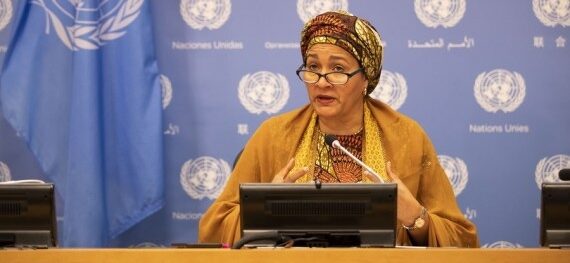United Nations, Nov 11 (UiTV/IANS) – Terrorism is intensifying across Africa, exploiting instability and conflict, UN Deputy Secretary-General Amina Mohammed said.
“Terrorists and violent extremists including Islamic State (IS), Al Qaeda and their affiliates have exploited instability and conflict to increase their activities and intensify attacks across the continent,” she told the Security Council high-level debate on “Counter-Terrorism in Africa – an Imperative for Peace, Security and Development” on behalf of Secretary-General Antonio Guterres.
“Their senseless, terror-fuelled violence has killed and wounded thousands and many more continue to suffer from the broader impact of terrorism on their lives and livelihoods,” Xinhua news agency quoted the UN deputy chief as saying on Thursday.
“Terrorist and violent extremist groups aggravate instability and human suffering. And they can plunge a country emerging from war back into the depths of conflict.”
Meanwhile, terrorists, non-state armed groups and criminal networks often pursue different agendas and strategies, fuelled by smuggling, human trafficking, and other methods of illicit financing – sometimes impersonating legitimate armed forces, said the she said.
And as digital tools spread hate and disinformation, terrorists and other criminal groups are exploiting inter-communal tensions and food insecurity triggered by climate change, Mohammed added.
In today’s hyper-connected world, she said, the spread of terrorism in Africa is “not a concern for African member states alone”.
“The challenge belongs to us all. Countering international terrorism requires effective multilateral responses.”
Outlining five suggestions to advance counter-terrorism efforts in Africa, Mohammed reminded that “prevention remains our best response”.
“We must address the instability and conflict that can lead to terrorism in the first place, as well as the conditions exploited by terrorists in pursuit of their agendas.”
The UN deputy chief called for community-based, and gender-sensitive “whole-of-society” approaches.
Other suggestions include calling for “sustained and predictable funding” to prevent and counter terrorism.











